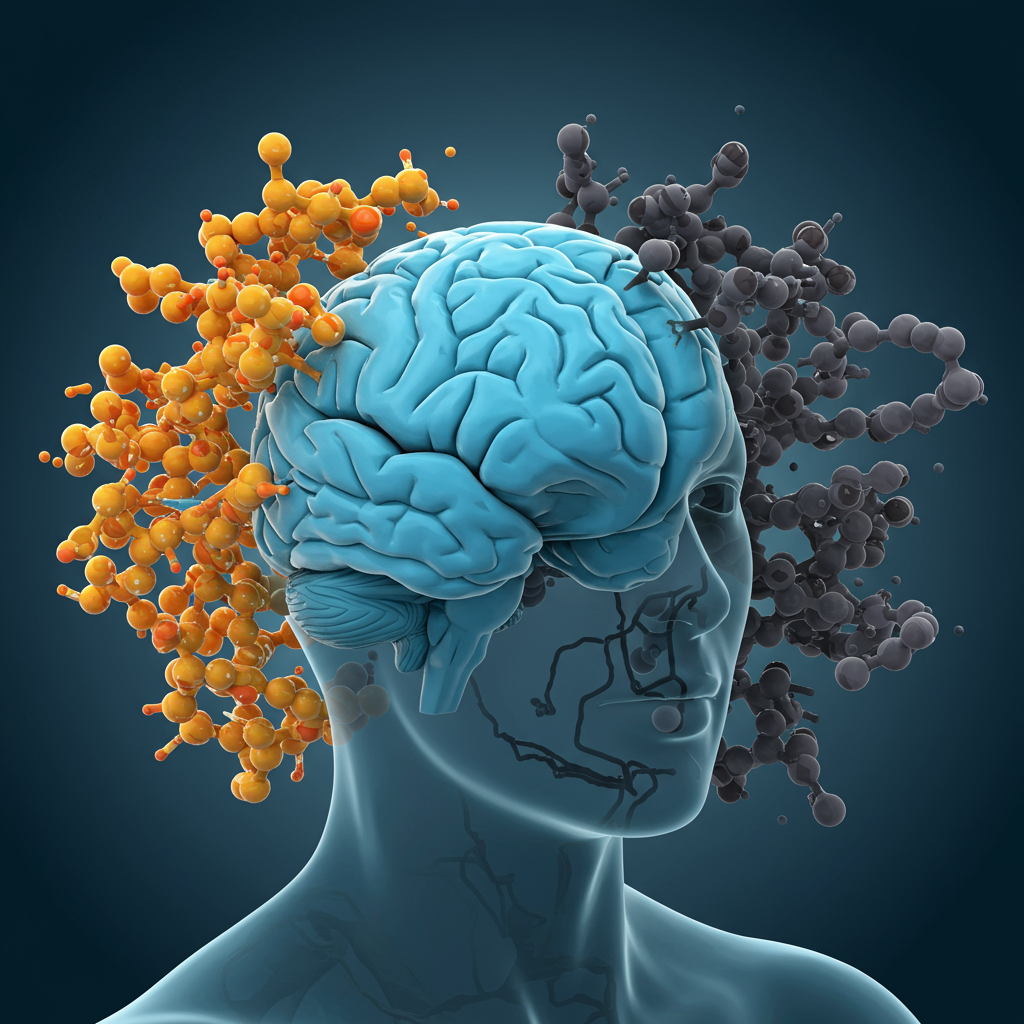For many, antidepressants offer crucial support through challenging times. However, a growing number of individuals report a disturbing reality: debilitating symptoms that persist for months or even years after they stop taking these medications. This phenomenon, often described as protracted withdrawal or enduring side effects, is prompting urgent calls for more research, recognition, and changes in medical practice.
Patients finding themselves in this difficult situation often describe feeling dismissed or disbelieved by their doctors. While short-term withdrawal symptoms like dizziness or nausea are widely acknowledged, the medical community’s understanding of symptoms that linger long after discontinuing the drug remains limited. This gap in knowledge leaves many patients suffering in silence, seeking answers and validation outside traditional healthcare settings.
Unseen Suffering: Patient Stories Emerge
The personal accounts of those affected paint a vivid picture of the profound impact these lingering symptoms can have. Phillipa Munari, for instance, experienced severe nerve pain and extreme exhaustion after tapering off an antidepressant she had taken for a decade. She described being bedridden for much of two years due to the physical toll. Her symptoms, including constant neck and shoulder soreness and debilitating anxiety, were unlike anything she’d felt before starting the medication. Even after a second, much slower taper, the physical pain lessened, but anxiety persisted to the point of causing panic attacks that made leaving her home impossible for years.
Another powerful story is that of Sven Huber. After 13 years on different antidepressants, including escitalopram (Lexapro), he experienced startling side effects while on the drug, such as genital numbness, emotional blunting, and cognitive issues. Upon attempting to stop, he initially faced intense withdrawal symptoms like “brain zaps,” anxiety, and suicidal thoughts. While these acute symptoms resolved after he successfully discontinued the medication, others remained. Years later, Huber still suffers from persistent blurry vision, burning feet, sexual dysfunction, and a profound emotional numbness, leaving him unable to feel emotions or deeply connect with loved ones.
These stories highlight the often unexpected and severe nature of the symptoms that can arise after stopping antidepressants, sometimes even manifesting or worsening after the initial withdrawal period is thought to be over.
The Medical Divide: Acknowledging Short-Term vs. Long-Term Effects
Medical professionals have long recognized that stopping antidepressants can lead to temporary withdrawal symptoms. These typically include issues like dizziness, nausea, insomnia, and anxiety, and are generally expected to resolve within a few weeks.
However, the concept of symptoms persisting for extended periods—months, years, or even longer—is less universally accepted or understood within mainstream psychiatry. Dr. Mark Horowitz, a British psychiatrist specializing in antidepressant withdrawal, notes that while individual cases have been documented for decades, there is a significant lack of large-scale studies. Without comprehensive research, experts disagree on how common these long-lasting conditions are, how to prevent them, and even what they should be called. Proposed terms include “protracted withdrawal,” “serotonin-induced neurological dysfunction,” or “antidepressant withdrawal injury.”
Estimates on prevalence vary widely. Dr. Nassir Ghaemi, a psychiatrist at Tufts University, believes such severe, long-term effects occur in an “unknown minority” of patients. Conversely, Horowitz and other specialists suggest the true number may be significantly higher, arguing that many individuals struggle to come off the drugs and either relapse, remain on medication to avoid intolerable withdrawal, or have symptoms misdiagnosed as a return of their original condition. The longer someone uses antidepressants, some research indicates, the more likely they may be to experience severe and lasting problems upon stopping. Certain drugs, like Effexor and Cymbalta, are often cited as particularly challenging to discontinue without issues, although lasting problems are also reported with others like Prozac and Lexapro.
Finding Community: The Rise of Patient Advocacy
Feeling unheard and unsupported by traditional healthcare, tens of thousands of patients have turned to online forums and communities. These platforms provide a space for sharing experiences, validating suffering, and exchanging information outside of medical channels. Groups focused on specific issues, like Post-SSRI Sexual Dysfunction (PSSD), or on navigating tapering, such as the Surviving Antidepressants forum or a large Cymbalta taper group, have seen massive growth in recent years.
These online communities have become powerful hubs for advocacy. Patients and their allies are actively lobbying governments and the medical establishment for crucial changes. They demand recognition for these conditions and, most importantly, funding for research to understand their prevalence, causes, and potential treatments.
Organizations like the PSSD Network have successfully raised funds for studies at universities in Italy and Canada. This initial institutional involvement, even through small grants, is viewed as a significant step towards validating patient experiences and pushing the medical community to address this issue seriously. The Antidepressant Coalition for Education encourages individuals to formally report their withdrawal experiences to regulatory bodies like the U.S. Food and Drug Administration (FDA).
Rethinking Tapering and Clinical Awareness
A critical issue raised by patient communities is the method of discontinuing antidepressants. Standard medical guidance often recommends tapering off over just a few weeks. However, individuals who have successfully navigated or are struggling with protracted withdrawal symptoms frequently advocate for a much slower approach. Based on patient experiences and the work of specialists like Dr. Mark Horowitz, strategies involving very gradual dose reductions—sometimes as little as 10% of the previous dose per month over a year or even longer—are recommended within these communities.
Adele Framer, who founded the Surviving Antidepressants forum after her own seven-year ordeal with withdrawal symptoms, has worked to extract data from patient narratives shared online to inform research. She highlights a “hidden public health problem” stemming from both patients and doctors lacking knowledge on how to taper safely. Framer’s new nonprofit, the Psychotropic Deprescribing Council, aims to develop and disseminate best practices for tapering psychotropic medications to minimize risks.
While some medical professionals, like Dr. Ghaemi, emphasize the established benefits of antidepressants for short-term use and caution against discouraging necessary treatment, he agrees they should not be prescribed routinely for decades unless clinically indicated for specific conditions like OCD. The focus on careful tapering is a point of agreement. Encouragingly, patient advocacy appears to be gaining traction. Influential bodies like the American Psychiatric Association (APA) have begun reviewing literature on PSSD and other lasting issues in response to patient complaints. This review, though potentially limited by the lack of existing research, is seen by advocates as a direct result of their persistent efforts and a sign that their voices are finally being heard.
Frequently Asked Questions
What are the long-lasting symptoms people report after stopping antidepressants?
After quitting antidepressants, individuals report a range of symptoms that can persist for months or years. These include severe nerve pain, profound exhaustion, chronic anxiety and panic attacks, emotional numbness (anhedonia), sexual dysfunction (like PSSD or genital numbness), blurry vision, burning sensations in the feet, and neurological issues like “brain zaps.” These can occur immediately upon stopping, weeks later, or worsen from side effects experienced while on the medication.
Why is there a lack of research on protracted antidepressant withdrawal?
There is a significant lack of large-scale, long-term studies on the effects of stopping antidepressants after extended use. Existing research often focuses on short-term effects or was not designed to specifically track withdrawal or long-term side effects. Experts disagree on the prevalence of protracted symptoms, and there’s no universally accepted medical definition or terminology for these conditions. This lack of established research makes it challenging to understand their causes or develop effective treatments.
What resources or advocacy groups exist for those with enduring symptoms after quitting antidepressants?
Feeling unsupported by traditional medicine, many people with enduring symptoms after stopping antidepressants turn to online patient communities. Large forums like “Surviving Antidepressants” and specific groups for conditions like PSSD or tapering methods provide peer support and information. Patient-led advocacy groups, such as the PSSD Network and the Antidepressant Coalition for Education, lobby for research funding, encourage reporting of adverse effects, and work to educate the medical community and the public about these often-debilitating conditions.
An Ongoing Struggle for Recognition
The experiences of people suffering from severe, long-lasting symptoms after quitting antidepressants represent a critical and often overlooked area in mental healthcare. While antidepressants remain vital tools for many, the potential for difficult and enduring withdrawal or side effects needs greater acknowledgement and understanding. The significant growth of patient communities and their successful advocacy efforts are forcing a re-evaluation by the medical establishment. As research into this complex issue slowly begins, driven largely by patient pressure, the hope is for better information, safer prescribing practices, and effective support for those whose lives have been drastically altered by the unexpected aftermath of stopping psychiatric medication.




